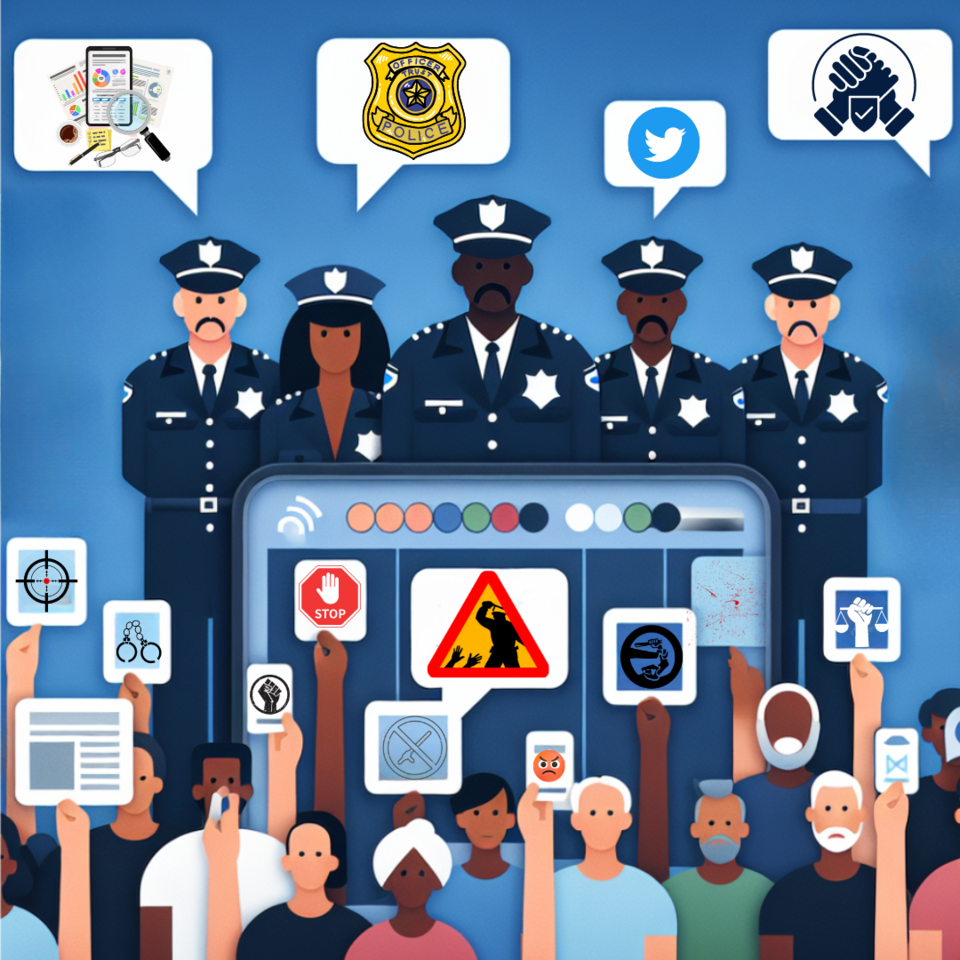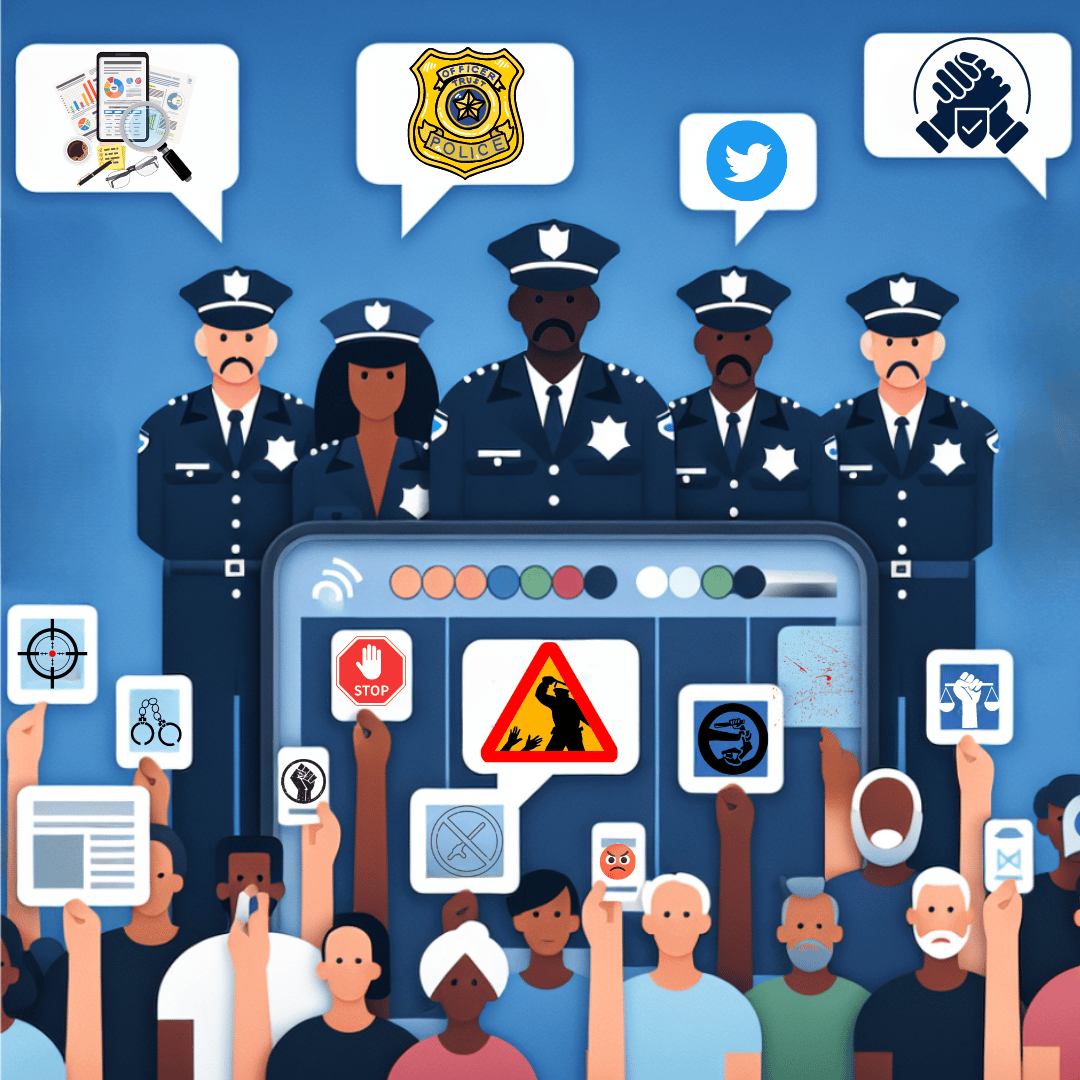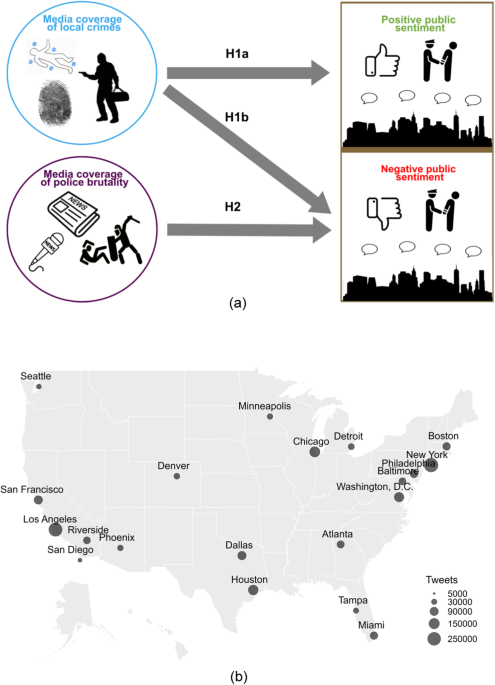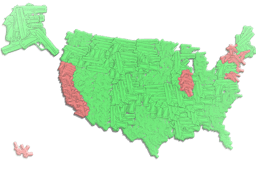How we appraise the police
Published in Social Sciences and Mathematics


Every morning, my family — including my three-year old daughter — passes the local police precinct to go to school. Typically, one or two officers are outside, coming in or out, and inevitably my daughter begins chatting with them. Sometimes she asks if they caught some “bad guy;” other times she thanks them for their service; and sometimes she jokes with them, saying that me or my wife are bad because we won’t let her eat candies or watch a movie. The officers are always friendly, nice, and funny.
I am certain many other families will report equally positive experiences in casual interactions with law enforcement officers, and more so when something important — like their own safety — is at stake and the police are there to help. Yet, public opinion about the police is divided, and incidents of police brutality play a critical role in forming such a divide. These inexcusable acts of violence destroy families and communities, while impacting the public’s view of the police everywhere in the United States.
At the Center for Urban Science and Progress (CUSP) at New York University’s Tandon School of Engineering, we investigated the extent to which media coverage of police brutality, versus media coverage of local crimes, impacts public sentiment about the police throughout 18 metropolitan areas in the country. The study began as a capstone project for our Master’s students at CUSP, and ultimately evolved into a two-year long endeavor led by Tandon Ph.D. student Rayan Succar and Fulbright Ph.D. student Salvador Ramallo — visiting CUSP from the University of Murcia, Spain — with the help and mentorship of Tandon post-docs Roni-Barak Ventura and Rishita Das.
We studied public sentiment by collecting more than 2.5 million geo-localized tweets (now posts on X) from 18 metropolitan areas in the US, over a period of 10 years. We performed sentiment analysis to tease out positive attitudes from negative ones towards the police. The purpose of exploring two types of media (local crime stories versus police brutality anywhere in the country) was to answer two questions about public sentiment towards the police: How do people respond to police success in lowering crimes in their cities? And how do they respond to events of police brutality?
Knowing that many factors could influence people’s sentiment towards the police, we approached this problem using causal inference. Unlike correlational analysis, causal inference allows us to understand the causes of an outcome variable of interest. We found that in all 18 metropolitan areas, events of police brutality triggered negative sentiment about the police. But when news about local crimes broke, people did not express negative nor positive sentiment towards the police..
These findings bring to question the role of media in the debate of police reformation. Media coverage should consider deliberately reporting a more balanced projection of police-related news.
At the same time, changes must be enacted from the police’s side as well to strengthen police-community relationships. Police agencies should train police officers to respond appropriately to perceived dangers, improve patrolling efficiency, and strongly position themselves against incidents of brutality. By taking these actions, I hope trust between citizens and their police will grow and my daughter can continue to thank police officers for their service as an adult.
Follow the Topic
-
Communications Psychology

An open-access journal from Nature Portfolio publishing high-quality research, reviews and commentary. The scope of the journal includes all of the psychological sciences.
Related Collections
With Collections, you can get published faster and increase your visibility.
Intensive Longitudinal Designs in Psychology
Publishing Model: Open Access
Deadline: Mar 31, 2026
Replication and generalization
Publishing Model: Open Access
Deadline: Dec 31, 2026





Please sign in or register for FREE
If you are a registered user on Research Communities by Springer Nature, please sign in